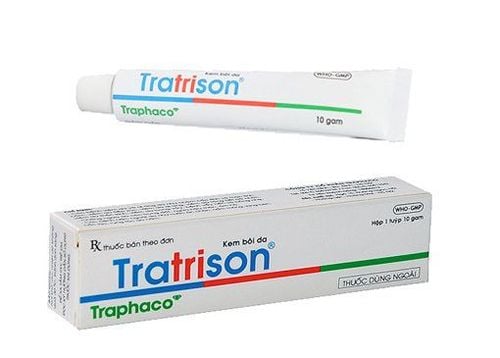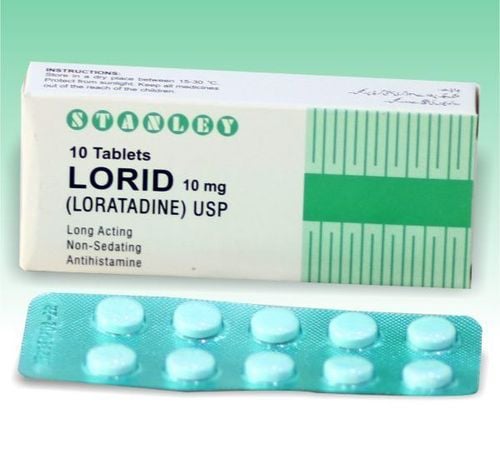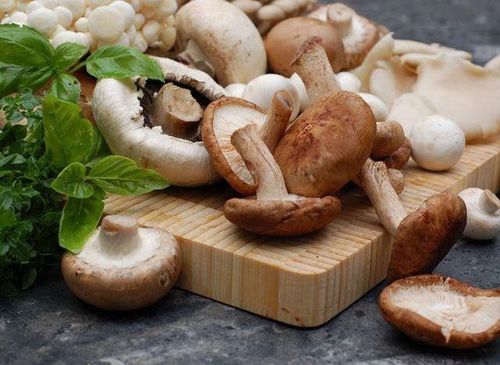This is an automatically translated article.
Mushrooms often have a variety of flavors with a characteristic texture and flavor. However, can 7-month-old babies eat mushrooms and how old can children eat mushrooms? This is a question asked by many parents.
Nowadays, you can buy many different types of mushrooms in grocery stores and supermarkets. In nature, mushrooms can grow anywhere and not all types can be eaten by humans. Some types of mushrooms can cause poisoning, but mushrooms sold in supermarkets or farmers markets are generally safe to eat. So, can a 6-month-old baby eat mushrooms and a 7-month-old child needs to pay attention to mushrooms?
1. Can a 7 month old baby eat mushrooms?
Currently, there are not any strict recommendations from health organizations or the government that young children should not eat mushrooms, especially when children can eat solid foods.
Many websites about eating organic, healthy foods and raising and caring for children recommend that you wait until your baby is 10-12 months old before introducing mushrooms into your child's diet. To make sure mushrooms are safe for children to eat, pediatricians and natural foods experts recommend that parents and caregivers cook mushrooms thoroughly before giving them to children.
2. Benefits of mushrooms for children
The benefits of mushrooms have been discovered by researchers. Adding mushrooms to children's dishes offers the following benefits:
The potassium content of some mushrooms is more than bananas. Mushrooms are a great source of iron, fiber and selenium. Mushrooms are also one of the best plant sources of vitamin D, which helps the body absorb calcium for strong bones, especially children. The vitamin D content in mushrooms may help fight colon cancer. However, when cooking mushrooms for children, it is important to be aware of the risk of children being allergic to mushrooms because there is a small percentage of children that can develop an allergic reaction when eating mushrooms, but this risk is particularly low.

Bổ sung vi chất từ nấm cho trẻ em
3. Suggestions for processing and cooking mushrooms for children
Mushrooms can be a good choice for babies in the weaning stage. Clean the mushrooms, then steam them, cut them into safe sizes so kids can pick them up with their hands. Mushrooms have a soft texture that can be chewed or mashed by children even if they only have a few teeth.
A wide variety of mushrooms with lots of flavor all their own, and some great vitamins and minerals, mushrooms are great food for kids that can be included in a main course, side dish, or as a complement to any dish. Mushrooms can be grilled, sautéed, roasted or any other way.
Here are some suggestions on how to cook mushrooms for children:
Stir-fried mushrooms: Put cooking oil (olive oil) or butter in a pan, then add garlic to fry until fragrant, finally add mushrooms and add a little salt. With such a simple preparation, children have a main dish with rice or noodles that is both delicious and nutritious. If it's a side dish, add meat or other vegetables like spinach, beans or potatoes to the saute pan with the mushrooms. Mushroom muffins: Baked mushroom muffins eaten with vegetables are a healthy suggestion to help children improve their health. Mushroom sandwiches: Instead of burgers, try making a mushroom sandwich. Creamy Mushroom Noodles: Another suggested side dish containing mushrooms for kids is cream noodles with mushrooms and spinach. Chicken cooked with mushrooms: Put chicken and mushrooms in the slow cooker for a delicious and nutritious mushroom chicken dish for your baby. Tortillas, mushroom quesadillas: Tortillas or mushrooms with melted cheese make a delicious and kid-friendly meal. Rice cooked with peas and mushrooms: A simple risotto dish with only 3 ingredients: rice, peas and mushrooms will have a delicious and pleasant taste, attracting children to the meal. Mushroom Pizza: Finally, a great mushroom recipe for kids to enjoy is the mushroom pizza with ketchup. Cooking mushrooms for children can fail the first time, because children often do not like the taste of mushrooms. Try different types of mushrooms and different cooking methods to help children get acquainted and love mushrooms, because mushrooms are foods with great taste, rich in vitamins and minerals, helping children prevent diseases.
For children to be healthy and develop well, it is necessary to have a nutritious diet in terms of quantity and quality balance. If children are not provided with adequate and balanced nutrients, it will lead to diseases of excess or lack of nutrients, which adversely affect the comprehensive development of children in terms of physical, mental and motor skills.
Nutrition has a very important role in helping children grow comprehensively. Children who do not eat properly are at risk of micro-mineral deficiencies, causing anorexia, growth retardation, malabsorption, etc. If they notice the above signs, parents should supplement their children with supportive products. The supplement contains lysine, essential micro-minerals and vitamins such as zinc, chromium, selenium, and B vitamins to help fully meet the nutritional needs of children. At the same time, these essential vitamins also support digestion, enhance nutrient absorption, help improve anorexia, and help children eat well.
Parents can learn more:
Signs of zinc deficiency in children
Micronutrient deficiency and failure to gain weight in children
Please regularly visit Vinmec.com website and update useful information to take care of your child. Take care of the baby and the whole family.
Reference source: healthline.com













